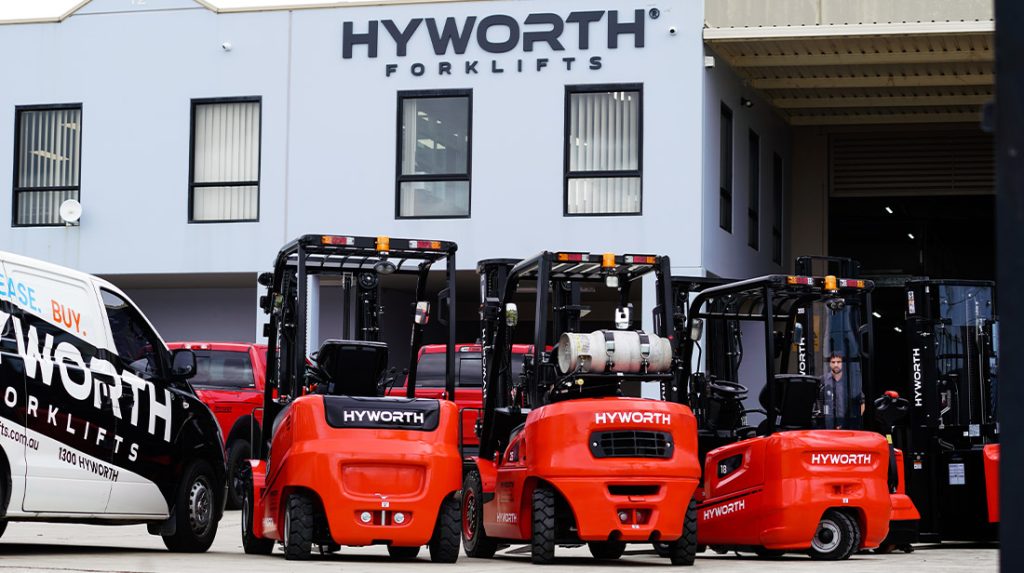
Having the correct tools is absolutely vital for establishing a profitable company. Selecting either electric vs LPG forklifts is one crucial choice. While both options offer advantages, the choice you make will significantly impact your operational efficiency.
Your chosen power source will influence environmental impact, performance, and expenses. While LPG forklifts frequently provide more power and flexibility for outdoor usage, electric forklifts are well-known for their environmental advantages and reduced long-term costs. Knowing the advantages and drawbacks of both choices will enable you to pick a wise one for your company.
This article will help you choose whether electric or LPG forklifts best fit your requirements by analysing their main variations. We’ll also discuss the different electric forklift models and what to consider when choosing one.
Understanding electric forklift options and their benefits
For many companies, electric forklifts are a preferred option because of their environmental advantages and efficiency. Electric forklifts come in a variety of types, each designed for a specific task. The type of work environment you operate in and your particular needs will determine the correct electric forklift you should use.
Types of electric forklifts: Walk behind, pallet movers, counterbalance, and reach trucks
When deciding between electric vs LPG forklifts, it’s important to understand the various types of electric forklifts available.
Walk-behind forklifts: These are compact and perfect for tight spaces. Designed for short-distance work, they have outstanding maneuverability. If you’re wondering, what is a walk behind forklift, it’s essentially a smaller forklift controlled by the operator walking behind it, making it ideal for confined spaces like small warehouses or loading docks.
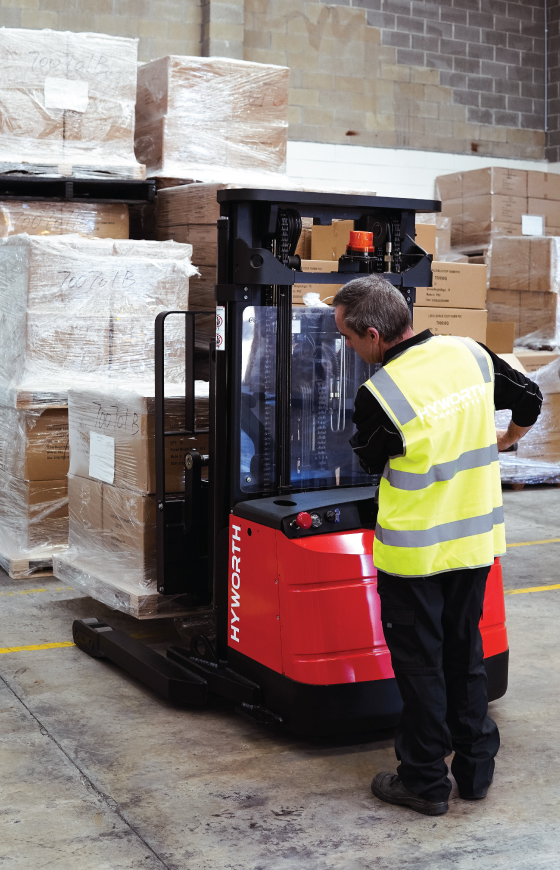
Pallet movers: These forklifts are specifically built for transporting pallets within warehouses. Perfect for companies with large pallet movements, they are quick and effective. They significantly enhance the productivity of indoor environments.
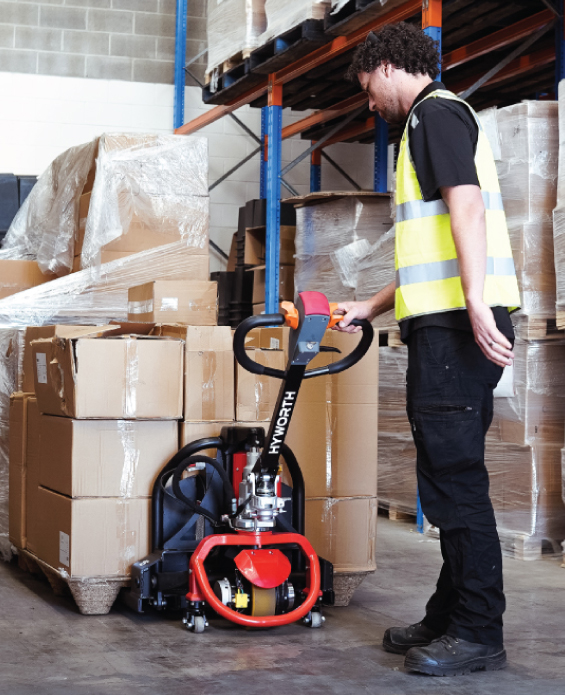
Electric counterbalance forklifts: Known for their versatility, these forklifts typically lift heavier loads. They are ideal for both indoor and outdoor use, provided the ground is smooth. Popular in many different sectors, counterbalance forklifts are made to balance large loads at the front.
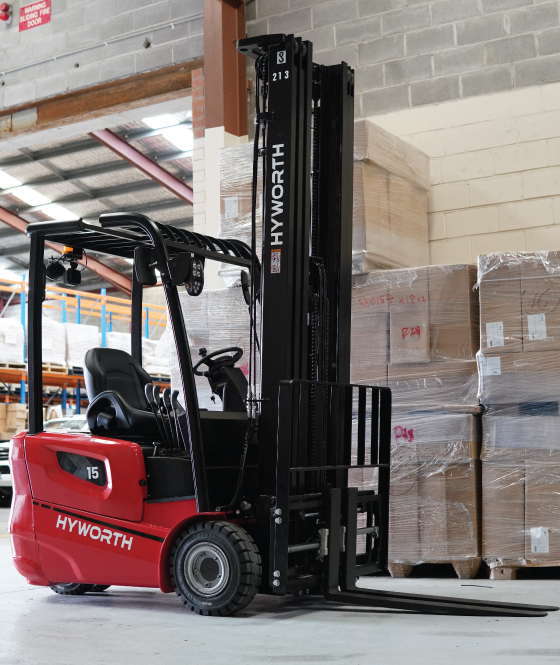
Reach trucks: These are designed for operating in narrow aisles, making them the perfect solution for warehouse racking. Their great range allows them to raise goods well above ground level, therefore optimising vertical storage capacity.
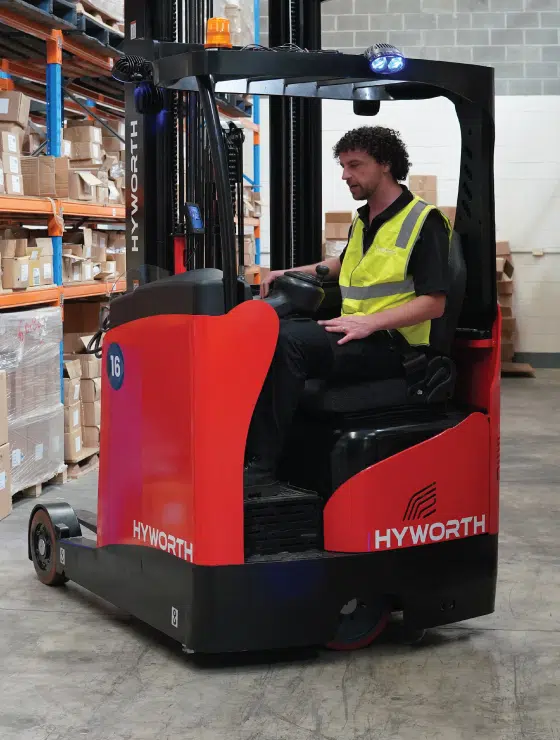
Advantages of electric forklifts
When comparing electric vs LPG forklifts, many companies are drawn to the electric models due to their variety of benefits. Their environmental friendliness ranks among the main advantages. Zero emissions made by electric forklifts make them perfect for indoor use and enable companies to reach environmental targets. Electric forklifts can significantly reduce your carbon footprint in today’s modern businesses, where environmental impact is becoming increasingly important.
The main benefit of electric forklifts is their quiet operation. Electric forklifts run almost silently, unlike LPG forklifts, which create noise. This could significantly improve the working environment, especially in indoor environments where noise control is crucial.
Electric forklifts are also known for their low maintenance costs. Compared to LPG models, electric forklifts have fewer moving components, which reduces the potential for errors. Long-term lower maintenance costs, fewer repairs, and less wear and tear result from this.
Lastly, electric forklifts are energy-efficient. The cost of recharging batteries is generally much lower than the cost of refuelling LPG tanks, making electric forklifts a cost-effective option over time.
Disadvantages of electric forklifts
However, it is important to consider a few disadvantages associated with electric forklifts. One of the main drawbacks is the higher initial purchase price. Electric forklifts tend to be more expensive upfront compared to their LPG counterparts. While they save money in the long run through lower energy and maintenance costs, the initial investment can be a barrier for some businesses.
Another downside is the downtime required for charging. Electric forklifts require recharging after several hours of operation, with varying charging times. This can cause downtime, particularly for companies with high demand shifts or running continuously. On the other hand, LPG forklifts can refuel quickly, allowing for a faster return to use.
Pros and cons of LPG forklifts for your business
When comparing electric vs LPG forklifts, LPG models come with their own set of advantages and disadvantages. Understanding these can help you decide if LPG forklifts are the right choice for your business needs.
Key benefits of LPG forklifts
LPG forklifts are known for their powerful performance. The LPG forklifts give the strength needed for heavy-duty operations and have more lifting capacity than electric forklifts, which would find difficulty in outdoor conditions.
Another significant advantage is the speed of refuelling. Unlike electric forklifts, which need hours to recharge, LPG forklifts can be refuelled within minutes. This means less downtime, making them ideal for businesses that operate around the clock or in fast-paced environments where quick turnaround is essential.
You can use LPG forklifts both indoors and outdoors, making them versatile. While they perform best in open-air environments, they can still be operated in large, well-ventilated indoor spaces.
Drawbacks of LPG forklifts
Despite their benefits, LPG forklifts come with some drawbacks. One of the most notable is the cost of fuel. LPG refuelling can be more expensive than recharging an electric forklift, particularly if your business uses multiple forklifts or operates long shifts.
Another drawback is the impact on the surrounding environment. LPG forklifts are less environmentally friendly than electric versions since they spew more pollutants. Businesses trying to follow rigorous environmental rules or lower their carbon footprint could find this troubling.
Finally, LPG forklifts tend to have higher maintenance costs. The engines require regular upkeep, and the fuel system components can wear out faster than those in electric forklifts, leading to additional expenses over time.
What to consider when choosing between electric vs LPG forklifts
When deciding between electric and LPG forklifts, there are several key factors to take into account. Both types of forklifts offer unique benefits, but the right choice will depend on your specific business needs. Below are the main points to consider when making your decision.
Cost Considerations
Electric forklifts have a higher upfront cost but lower long-term expenses. Electricity is cheaper than LPG fuel, and maintenance costs are generally lower. In contrast, LPG forklifts are less expensive to buy but cost more to run due to fuel and maintenance needs.
Performance and operational needs
Electric forklifts are ideal for indoor use, offering quiet, emission-free operation and handling light to medium loads. LPG forklifts, however, excel outdoors, providing more power for heavier loads and quick refueling for continuous use.
Environmental impact
If sustainability is a priority, electric forklifts are the greener choice with zero emissions. LPG forklifts produce exhaust, which may not align with eco-friendly business goals.
In summary, the decision between electric vs LPG forklifts depends on cost, performance needs, and environmental considerations.
Why electric forklifts are leading the way in forklift technology
In recent years, electric forklifts have gained popularity, driven by green energy initiatives and the push for more sustainable operations. Many businesses are choosing electric models not just for their environmental benefits but also for their long-term cost savings. With lower fuel and maintenance costs, electric forklifts offer a clear advantage in reducing operational expenses over time.
Innovations in battery technology have also played a significant role. Modern electric forklifts now have longer battery life and shorter charging times, making them even more efficient. These advancements are especially important in warehouses, where continuous operation and energy efficiency are critical.
As businesses increasingly focus on sustainability, sustainable forklift solutions like electric models are becoming the preferred choice. With zero emissions and lower running costs, it’s clear why electric forklifts are leading the way in forklift technology.
Conclusion
When choosing between electric vs LPG forklifts, the decision comes down to your business needs. Electric forklifts offer eco-friendliness, lower running costs, and quiet operation, making them ideal for indoor use. On the other hand, LPG forklifts provide more power, quicker refueling, and better performance outdoors.
Ultimately, the right choice depends on your operational demands, budget, and environmental goals. If you’re still unsure, the Hyworth team is here to help. Reach out to us for expert advice on selecting the best forklift solution for your business.